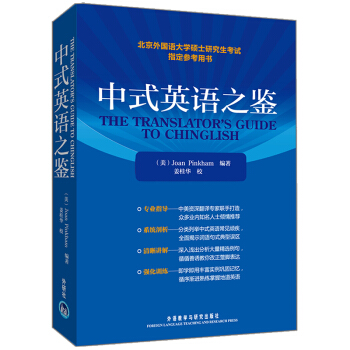
《中式英语之鉴》笔记(二)
I. Unnecessary Nouns and Verbs(不必要的名词和动词)
Nouns(名词)
A. 特征
中式英语中的不必要名词一般不是单独出现,而是伴随着冠词和介词,以短语形式出现。因此删除时,要把冠词和介词一同删除
B. 类型及解决方法
1. Redundant nouns(冗余名词)
这类词很容易识别,因为它们的意义早已包含或显现在句子的其他成分里了。
下面是两个例句,A句为中式英语,B为修改后的版本,括号内为注解。随后的例句均为此形式。
A: there have been good harvest in agriculture
B: there have been good harvest
[“Harvest” implies agriculture: there are no harvests in industry.]
A: the development of our economy in the future will, to a large extent, depend on...
B: the development of our economy will depend to a large extent on...
[The future tense of the verb(“will depend”)is sufficient to express futurity]
2. Empty nouns(无意义名词)
无意义名词较难发觉,删掉这类名词并不影响句意,反而会让句子变得更清晰。
A: following the realization of mechanization and electrification of agriculture
B: following the mechanization and electrification of agriculture
A: at that time the situation in northeast China was still one where the enemy was stronger than the people’s forces.
B: at that time the enemy was still stronger than the people’s forces in northeast China.
[“situation” is a particularly dangerous noun. Not only is it generally unnecessary, but it drags other unnecessary elements after it (in this instance, ”one where”]
3. Category nouns(范畴词)
范畴词值得特别注意,因为它是中式英语中最常见的不必要名词。它的存在只是为了引出更具体的名词。
A: a serous mistake in the work of planning
B: a serous mistake in planning
A: to ensure a relationship of close cooperation between...
B: to ensure close cooperation between...
动词(Verbs)
大多数不必要的中式英语也通常以短语出现,主要有两种类型。
Unnecessary verb + noun(不必要动词 + 名词)
Unnecessary verb + unnecessary noun + third word(不必要动词 + 不必要名词 + 其他词)
1. Unnec. Verb + noun
A: we must make an improvement in our work”
B: we must improve in our work
在这个句子中动词”make”是一个弱动词,万能,无感情色彩,也没有具体含义,而真正的动作体现在名词“improvement”上。
要修正这类结构,删去不必要词汇,使用明晰的动词代替即可。
A: An improvement must be made in our work.
B: our work must be improved.
这个结构也会以被动语态出现,但解决方法一样。
类似例子
To have a dislike for = to dislike
To have a trust in = to trust
To give guidance to = guide
...
2. Unnec. Verb + unnec. Noun + third word
A: our efforts to reach the goal of modernization
B: our efforts to modernize
在上个结构里,宽泛模糊的动词无法明确表达具体的动作,将这一任务转移给了名词。第二种结构,动词 ”reach” 和名词 “goal” 都无法承担这一任务(“goal” 其实是范畴词),因此这一任务要由其他词 ”modernization” 完 成。
A: this measure will have a restrictive effect on the activities of speculators
B: this measure will restrict the activities of speculators
有时候要承担动词任务的其他词不是名词,而是形容词, ”restrictive”。
A: we failed to take care to ensure that there must be an all-round balance between the various planned targets
B: we failed to ensure an all-round balance between the planned targets
有时候这个词也会是动词,”ensure”。
PS:”there must be” 和 ”ensure” 意义重复。因为 ”targets” 是复数,”various” 并没有为句子增添新意。
Overworked introductory verb phrase( 过度引入动词词组)
这些动词词组重复太多,力量不断削弱,以至于不能达到强调的目的。而真正要表达的动作也因为累赘的形式失去了读者的注意。
A warning about revision (修改时的注意点)
前面举出的例子出现时十有八九都是多余的,但删除前也要进行合理判断。
At present it is necessary to,
"at present"可能确实在强调暂时性
We must make great efforts in education
"make great efforts"在句子中确实是合理的。



